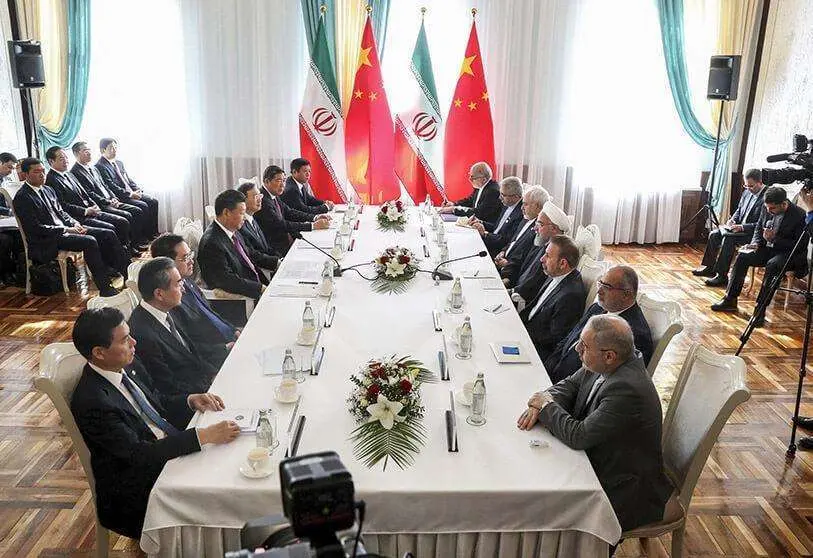China continues to strengthen its partnership with Iran

Beijing on Saturday confirmed its intention to strengthen its relations with Iran, with the aim of enhancing economic and political cooperation between the two, bypassing the sanctions imposed by the US capital on Tehran, which China has consistently criticized, and will continue to "oppose unilateral and illegal sanctions against Iran," the Chinese Foreign Ministry reported.
"Iran is a key state in the Belt and Road Initiative, and a major exporter of oil to China," Hua Liming, former Chinese ambassador to Tehran, told Chinese media outlet Global Times, speaking of the project that will traverse countries in Asia, as well as Europe, Africa and the Middle East.
After years of intensive talks, China and Iran signed an agreement last year that will cover sectors such as energy, infrastructure, security and communications.

Wang Yi, China's foreign minister, and his Iranian counterpart, Hossein Amir Abdollahian, announced last Friday at a meeting in Wuxi, eastern China, the start of the partnership agreement, according to the Chinese Foreign Ministry.
"We believe this document can be very effective in deepening Iran-China relations," Iranian Foreign Ministry spokesman Saeed Khatibzadeh reported.
"This document is a comprehensive roadmap with political, economic and strategic clauses covering trade, economic and transport cooperation, with a special focus on the private sectors of the two sides," he added.
Also, although not many details are known in this regard, according to a draft of the agreement leaked to The New York Times, China would have been provided with regular oil supplies. .

It is worth noting that China is Iran's main trading partner, as well as one of the largest oil procurers before Donald Trump, former US president, imposed sanctions on Iran again in 2018.
However, China has officially ended oil imports from Iran, even though various analysts believe that the country still receives Iranian oil through exports from other countries.
Beijing has been seeking to strengthen its relations with Tehran for a long time as "China's main ally in the Middle East," as stated by Chinese President Xi Jinping during a visit to the country in 2016.
Likewise, Hossein Amir Abdollahian's visit to China has also coincided with the meeting of the foreign ministers of four other countries in the Gulf Cooperation Council, on the eve of an increase in oil prices, on which China mainly depends to keep its economy in constant motion.

Notably, in 2014, Chinese President Xi Jinping assured that he would double trade with the Gulf region by 2023, in his aim to achieve a balance in relations with Iran and the Gulf States.
In 2015, the United States, China, Russia, Britain, France, Germany and Iran signed an agreement providing for the removal of sanctions on Tehran in exchange for the implementation of restrictions regarding its nuclear program.
However, the United States unilaterally withdrew from the agreement in 2018, again imposing new sanctions on Iran.
As a result, Iran has been violating its previous commitments.

In November, talks to re-activate the nuclear deal resumed after being suspended in June due to the formation of a conservative-line government in Tehran.
In the Foreign Ministry statement, Wang Yi was quoted as saying to his Iranian counterpart Hossein Amir Abdollahian that China held the United States responsible for the current outcome of the nuclear deal.
The Middle East has become a key area in the struggle for Chinese hegemony and this is causing a shift in China's foreign policy. The Asian giant is doing so through a mixture of hard and soft power, as well as economic and financial means to establish itself as a hegemonic state in the area.

The diplomatic policy in recent years has outlined the strategy of silent conquest, creating the consumer's need to acquire consumer goods that they produce. That is why China has shown itself to be a major global power in several key sectors for society worldwide, such as technology and economics, among others.
The Middle East is in its sights, due to the energy market in this region, the interest in establishing maritime routes of strategic interest and a large network of infrastructures and technological and industrial development.









